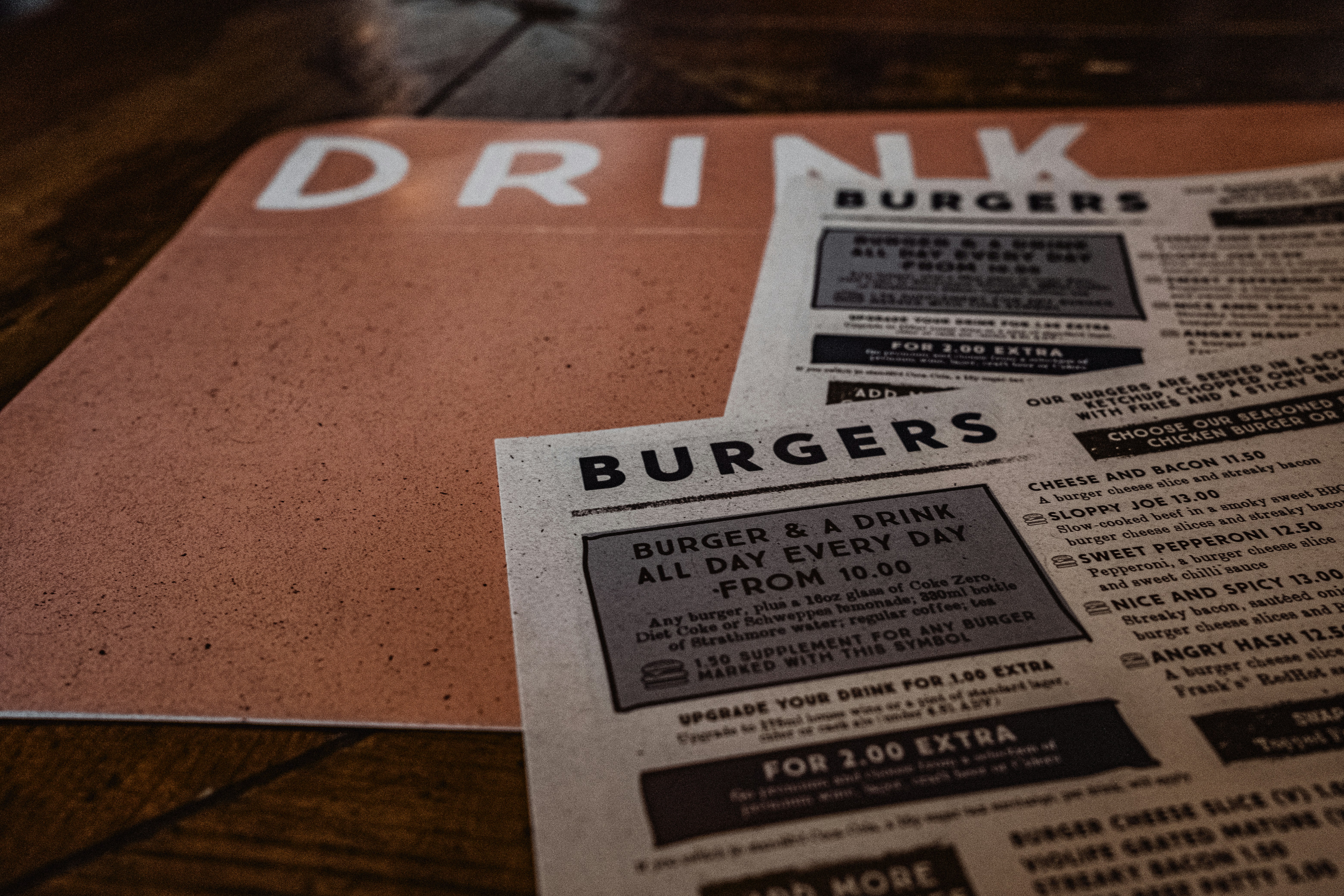Part 2: Implementation Guide
Preparing for SB 68 – Practical Steps and Industry Impact
With SB 68 set to take effect July 1, 2026, restaurant operators should now shift from awareness to action. Beyond understanding the law, success will depend on planning how to implement allergen disclosures across menus, training staff, and managing the operational impact.
Key Considerations
"Knows or Reasonably Should Know"
The law requires disclosing allergens a restaurant "knows or reasonably should know" are present. This means:
- You're accountable for checking ingredient labels and supplier information.
- You're protected if an allergen was hidden by a supplier and not reasonably knowable.
- You're still responsible for overall food safety – labeling does not replace safe handling or preventing cross-contact.
Think of it as a standard of diligence, not perfection. Having a clear process and making best efforts to do the right thing, will protect you against edge case mistakes which can occur due to supply chain issues.

Cross-Contact: What SB 68 Doesn't Cover
SB 68 only requires disclosure of allergens as ingredients. It does not require warnings about potential cross-contact.
Operators should consider adding voluntary disclaimers, such as:
"While we list major allergens in our dishes, we cannot guarantee against cross-contact in our kitchens."
This manages customer expectations and encourages dialogue. Staff should be ready to explain how your kitchen manages (or cannot eliminate) cross-contact risk.
Are Franchisees in scope?
SB 68 impacts both franchisors and their franchisees doing business in California, including systems with fewer than 20 locations in California.
Even if a system has only one franchisee-owned California location, if it has more than 20 locations worldwide, compliance with SB 68 would be required.
Consequences / Penalties for Non-Compliance
For restaurants that are subject to SB 68, enforcement falls to local agencies, which may verify compliance through visual inspection or other reasonable means. Here are a list of potential consequences of non-compliance:
1. Misdemeanor Liability
Violating the California Retail Food Code (which SB 68 expands) can be a misdemeanor, punishable by fines, possibly imprisonment (county jail), or both.
2. Fines
The underlying CalCode gives: fines, or up to six months in county jail, or both, for violations (unless otherwise specified) under §114395 or §114405 of the Health & Safety Code. Also, under the existing CalCode, permit suspension or revocation is a tool for serious or repeated violations.
3. Permit Suspension or Revocation
Under CalCode, local health officials can suspend or revoke a food facility's permit if it fails to comply with health code requirements — and SB 68 builds into that regulatory framework.
4. Local Health Enforcement / Inspections
Local health agencies will be given the authority to visually inspect menus (printed or digital) and verify whether allergen disclosures are being made. If non-compliant, inspectors might issue notices, order corrections, or escalate to enforcement actions under local jurisdiction.
5. State-mandated Local Program (Cost Burdens)
The law also imposes obligations on local agencies (e.g. to revise inspection forms, staff training, surveillance). While these are not direct penalties on restaurants, they strengthen enforcement infrastructure.
6. Reputational / Litigation Risk
- Public disclosure of violations or "health code violation" status can harm reputation.
- Civil litigation or claims (e.g. from customers harmed by undisclosed allergens) might use non-compliance as evidence of negligence.
- In states like California, health regulations sometimes provide a basis for private party or consumer protection claims.
7. Cost of Compliance & Retrofitting
While not a penalty per se, failure to comply could force rushed, expensive reprinting of menus, digital system overhauls, retraining, and possible correction notices. Noncompliance might also increase audit scrutiny or control costs.
Having a process in place to ensure accurate information on an ongoing basis is the key to mitigating against these potential penalties.

How to Comply in Practice
To prepare, restaurants should begin by:
1. Conduct Audit on Current Menu Items, Recipes and Ingredients
Map allergens across your entire menu, using supplier labels and spec sheets. Operators and franchisors may consider retaining a third party to evaluate which standard menu items contain major food allergens (including sauces, toppings, garnishes, and dressings).
2. Choose your disclosure format and redesign menus
Operators and franchisors should establish a standard format for how company-owned stores and franchisees present allergen information under SB 68. They have the option of providing this information directly on the printed menu or in a digital format (i.e., a digital menu board or QR code that links to the menu).
3. Review Operations and Train Staff
Update operations manuals and training to ensure proper storage, preparation, and handling of allergen vs. non-allergen foods. This includes separating raw/cooked foods, using dedicated equipment, and enforcing handwashing and sanitization to minimize cross-contamination. Employees should know where to find allergen info and how to communicate with guests about it.
4. Monitoring Compliance and Document Updates
Establish audits and inspections to confirm allergen disclosures are accurate and preparation practices align with requirements. Keep ingredient records and version control for menus and allergen charts to show due diligence.
5. Notify Franchisees
Franchisors should clearly communicate SB 68 requirements to franchisees. While franchisors may test products and develop disclosures, each franchisee remains responsible for compliance and proper preparation. Franchise agreements should also be updated by adding express obligations requiring compliance with allergen laws. Ensure indemnification provisions cover failures to disclose or properly handle allergen-containing items.

Takeaway
Compliance is more than a legal obligation – it's an opportunity to demonstrate leadership in guest safety and transparency. Restaurants that prepare now will not only avoid last-minute stress but also build stronger trust with a valuable customer segment.
SB 68 is coming. By July 2026, allergen labeling won't just be good practice – it will be the law in California, and likely the expectation nationwide.